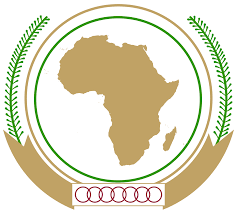H.E Solomon Dersso, Chairperson of the African Commission on Human and Peoples’ Rights
CC:
Abdel Fattah al-Sisi, Chairman of the African Union
Moussa Faki Mahamat, Chairperson of the African Union Commission
Smail Chergui, Commissioner for Peace and Security of the African Union Commission
We, a coalition of 65 organizations, write to you in your capacity as the Chairperson of the African
Commission on Human and People’s Rights (The Commission), to encourage you to urgently address
the deteriorating human rights situation in Cameroon.
Over the past three years, Cameroon’s Anglophone regions have been embroiled in a cycle of
violence that has claimed 3000 lives, forced half a million people to flee their homes and left over
700,000 children out of school.
The crisis in the North-West and South-West regions began in late 2016, when teachers, lawyers,
students and activists, who had long complained of their regions’ perceived marginalization by the
central government, took to the streets to demand more recognition of their political, social, and
cultural rights. The brutal response of the government forces, who killed peaceful protesters, arrested
leaders and journalists, banned civil society groups and blocked the internet, escalated the crisis. Since
then, numerous separatist groups have emerged calling for the independence of the Anglophone
regions and embracing the armed struggle.
Government forces and armed separatists have both been responsible for serious human rights abuses.
Security forces have killed civilians, burned dozens of villages, arbitrarily arrested and tortured
hundreds of alleged armed separatists. Armed separatists have also targeted civilians, kidnapped
hundreds of people, tortured and killed perceived opponents, while using intimidation and violence to
keep children and their teachers out of school.
At its 62nd Ordinary Session, held from 25 April to 9 May 2018, the Commission adopted Resolution
395 (LXII) 2018 condemning human rights abuses committed in Cameroon’s Anglophone regions
since October 2016 and calling for impartial and independent investigations to be conducted in order
to bring perpetrators to justice.
On September 10, 2019 amid increasing violence and following sustained international pressure,
President Paul Biya called for a national dialogue to address the Anglophone crisis. The dialogue
ended on October 4 with several proposals made, including the adoption of a special status for the two
Anglophone regions. In separate moves, President Biya also decided to drop all charges against
hundreds of people arrested in the unrest in the North-West and South-West as well as political
opponents, including Cameroon Renaissance Movement (CRM) leader Maurice Kamto, a political
prisoner.
We, the undersigned organisations, welcome the release of hundreds of political actors and other
detainees in Cameroon and urge that jailed journalists and other activists are also freed. We also
express deep concern about the lack of discussions on serious human rights abuses during the
dialogue. The final report of the dialogue did not include any language or recommendations on abuse
and accountability for serious crimes committed by government forces and armed separatists. None of
the commissions established in the framework of the national dialogue was mandated to examine
human rights issues, and there was no prior consultation with the victims of the human rights abuses
in the Anglophone regions before the dialogue.
Cameroon, a member of the African Union since 1963, is a party to important regional instruments,
including the African Charter on Human and Peoples’ Rights which sets out member states
obligations’ to respect, protect and fulfil human rights.
In accordance with article 58 of the African Charter on Human and Peoples’ Rights, which foresees
the Commission referring cases of serious human rights violations to the Assembly of Heads of State
and Government, we call upon you and the Commission to:
- Refer serious and systematic human rights violations in Cameroon to the next Assembly of
Heads of State and Governments scheduled to take place 30 and 31 January 2020; - Provide a briefing to the Peace and Security Council;
- Establish and carry out a fact-finding mission into all allegations of human rights abuses
committed in the Anglophone regions since late 2016 and recommend future steps to ensure
perpetrators are brought to justice; - Call upon the African Union to create the position of a special envoy on Cameroon who
reports directly to the African Union Peace and Security Council. Beyond acting as a liaison
between the Cameroonian government and the African Union, this envoy should inquire into
and rapidly report on civilian protection needs and challenges.
The Commission has recommended and conducted fact-finding missions in similar situations and its
decisions have built important principles that could be applied to Cameroon.
As the search for a long-lasting solution to the crisis in the Anglophone regions of Cameroon
continues, the Commission should make accountability for human rights violations a priority of its
strategy and intervention. This would be an important signal of the Commission’s commitment to
justice and accountability for violations of human rights norms.
Read full letter Joint Civil Society Letter to the Chairperson of the ACHPR
 African Centre for Justice and Peace Studies ACJPS | المركز الافريقي لدراسات العدالة و السلام
African Centre for Justice and Peace Studies ACJPS | المركز الافريقي لدراسات العدالة و السلام




